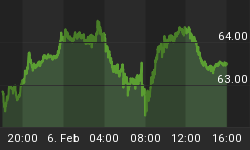Here are a few charts that show the current state of tension in regards to the European sovereign debt crisis. The charts also show why E-Bonds, the wet dream of Jean-Claude Juncker, is not going to happen.
Jean-Claude Juncker is President of the Euro Group and Prime Minister of Luxembourg (not to be confused with Jean-Claude Trichet, President of the ECB). Junker's plan, supported by the IMF is to combine the bonds of all the Eurozone countries into one entity, with a statement that E-bonds would end the crisis.
The plan has long been dead as France nixed the idea as well, and the charts show why: Germany and France do not want their borrowing costs to rise. The charts also show persistently high tension in the PIGS.
Thanks to Chris Puplava at Financial Sense for the list of symbols for this post. The charts all courtesy of Bloomberg.
Given that the crisis is not contained nor is there any chance of it being contained until there are haircuts, look for this crisis to come to a head in 2011.
For more on the crisis, please see Support Rises for "European Nanny State"; Is Germany unfit for the Euro or is the Euro Unfit for the PIIGS?






















